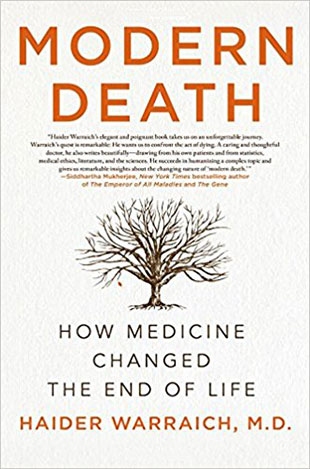"In every research study performed and every treatment evaluated, the only endpoint that determines success or failure is death. A treatment may make people feel much better, but if it doesn’t prevent death, it is shelved.
"When it comes to themselves, doctors certainly don't consider death the worst possible outcome. In fact, the vast majority of physicians value the quality of their life far more than the length of their life. This is reflected in the fact that physicians rarely want to have CPR performed on them if the need arises. This is true in young and older physicians. Certainly when it comes to themselves, physicians prefer a swift death to protracted dying.
"Perhaps it is time that physicians, like some of their patients, start to have more honest and open conversations about death. That is easier said than done. Death has become highly politicized in the United States and politicians frequently use things people fear to control them. While at one time physicians often spoke over their patients, the pendulum has now swung and physicians choose to stay mum at a time when their opinion would be of greatest value.
"People have always talked of conquering death, and it has been assumed that death can be conquered by somehow averting it. To me death derives its power from the deafening silence it induces whenever it enters a discussion. We would benefit from resuscitating many of the aspects of death that we have lost. Death needs to be closer to home, preceded by lesser disability and less isolation, but there is an important aspect of death that we have to do away with. The deaths we die cannot be truly modern until we bring the subject of death within the pale of conversation and start having calm, educated conversations about it in classrooms, bars, restaurants, backyards, and, of course, in the clinic."
